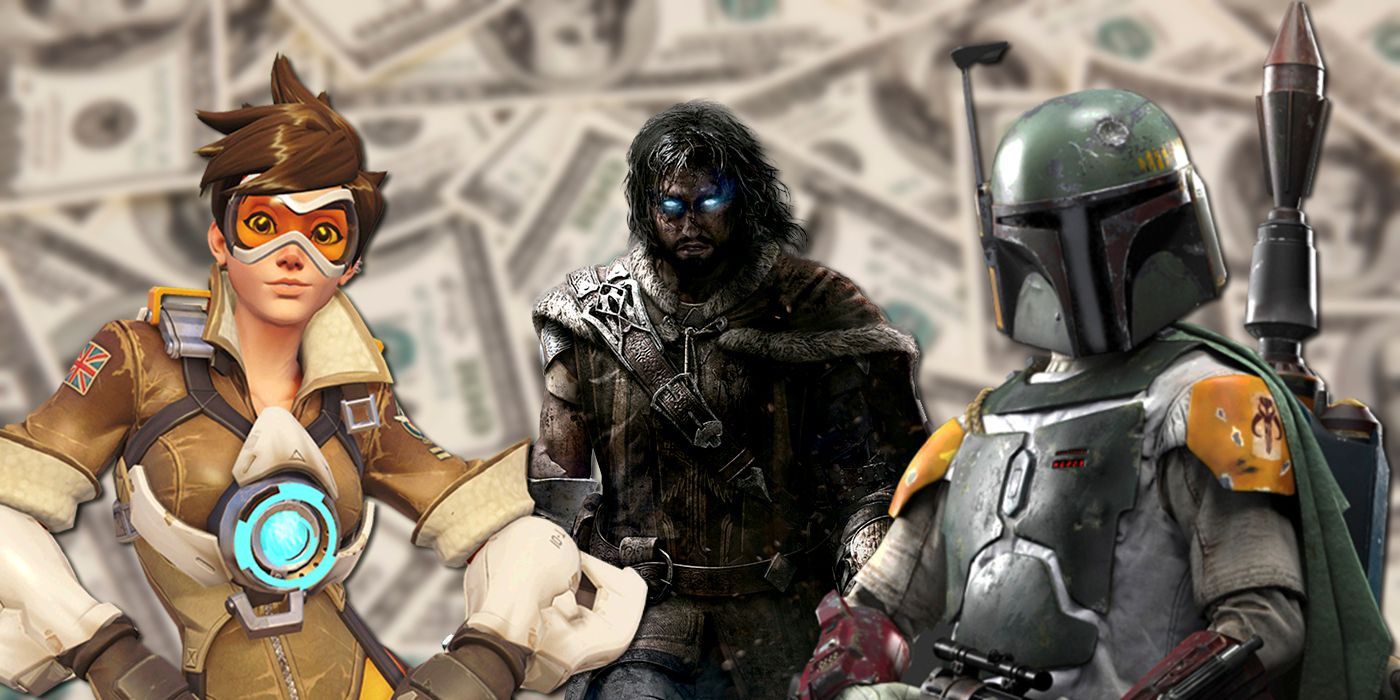Loot boxes are the bane of any Star Wars: Battlefront II player's life, although the latest in the otherwise beloved franchise is just the tip of the iceberg.It's been a bad few weeks for Electronic Arts. November, of course, saw the release of Battlefront II, a game that on paper promised to make up for the disappointment found in its previous iteration. It's a game based on one of the most important intellectual properties of all time, with a seemingly authentic take on the Star Wars universe and a brand new story to tell. In short, it should have been one of the best gaming experiences of the year.Related: Are Lootboxes and Microtransactions a Necessary Evil?The reality, of course, is something different. Star Wars: Battlefront II released with a microtransaction system that has been described as predatory, implementing loot boxes on top of a standard AAA gaming price tag, resulting in a system with such skewed odds that it would take a gamer 4528 hours or $2100 to unlock all Battlefront II content. As such, Battlefront II has received one of the biggest backlashes seen in video games, with a defense of the game from EA setting the record for the most downvoted post in Reddit history.Changes have been made off the back of the complaints, with tweaks made prior to the game's release making it feel more like an expensive beta than anything else. Eventually, EA and developer DICE agreed to temporarily roll back the microtransactions, but it's fair to say that the damage has already been done. The game was unable to hit top spot in sales charts in its first week, and it's unlikely that is going to change going forward.The Problem With Battlefront II and Loot Boxes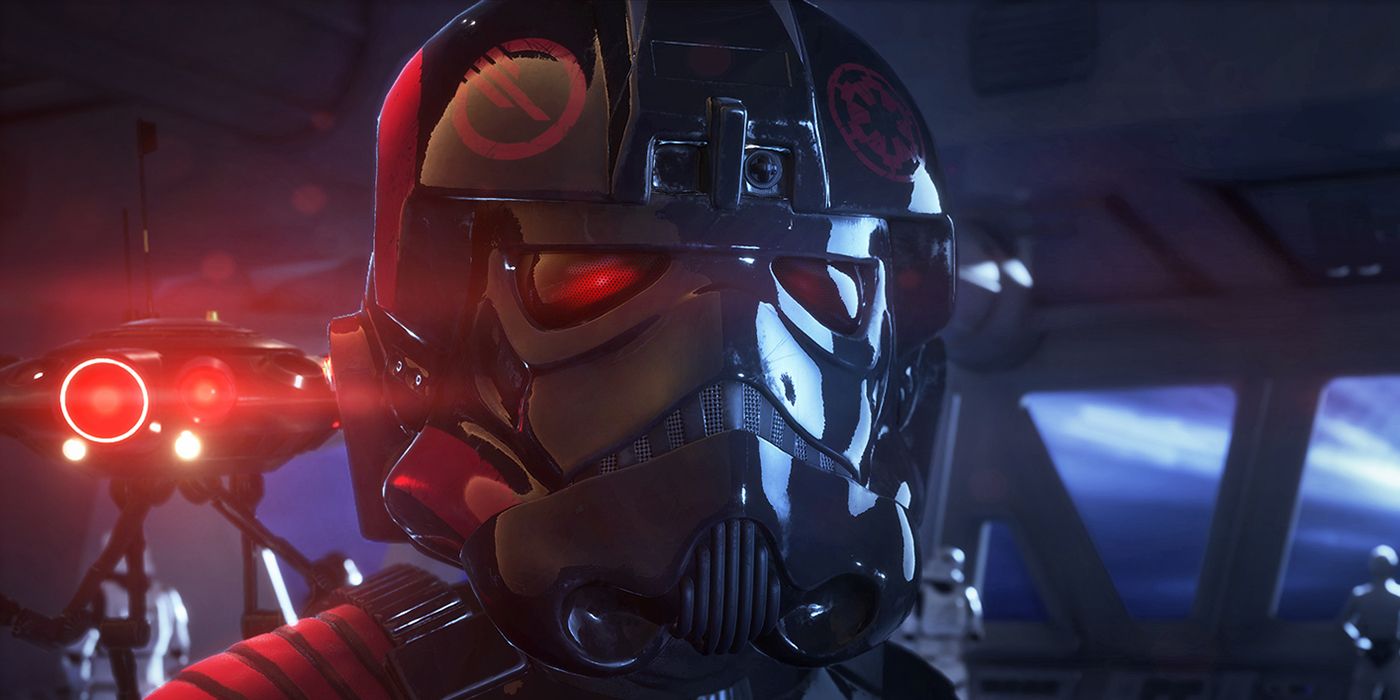 That said, the title is going to have a legacy, albeit not the kind that EA would have necessarily wanted. After all, Star Wars: Battlefront II has started a conversation. For the game's critics, it's a conversation that should have begun a long time ago.The issue of loot boxes in gaming has been a topic of much discussion. For some, the idea of in-game purchases of a random nature is dangerous, and the practice has been condemned as such, essentially describing loot boxes as gambling with a fresh coat of paint.Related: Star Wars: Battlefront 2 TV Spot Reveals Crait MapThere have been defenses of the practice, with some citing the increased cost of game development as a reason why game creators have taken this step. As well as this, others have talked up the popularity of in-game purchases, and the success of loot boxes in mobile and free-to-play gaming. If players are making these purchases, then the business model is surely proving correct.
That said, the title is going to have a legacy, albeit not the kind that EA would have necessarily wanted. After all, Star Wars: Battlefront II has started a conversation. For the game's critics, it's a conversation that should have begun a long time ago.The issue of loot boxes in gaming has been a topic of much discussion. For some, the idea of in-game purchases of a random nature is dangerous, and the practice has been condemned as such, essentially describing loot boxes as gambling with a fresh coat of paint.Related: Star Wars: Battlefront 2 TV Spot Reveals Crait MapThere have been defenses of the practice, with some citing the increased cost of game development as a reason why game creators have taken this step. As well as this, others have talked up the popularity of in-game purchases, and the success of loot boxes in mobile and free-to-play gaming. If players are making these purchases, then the business model is surely proving correct.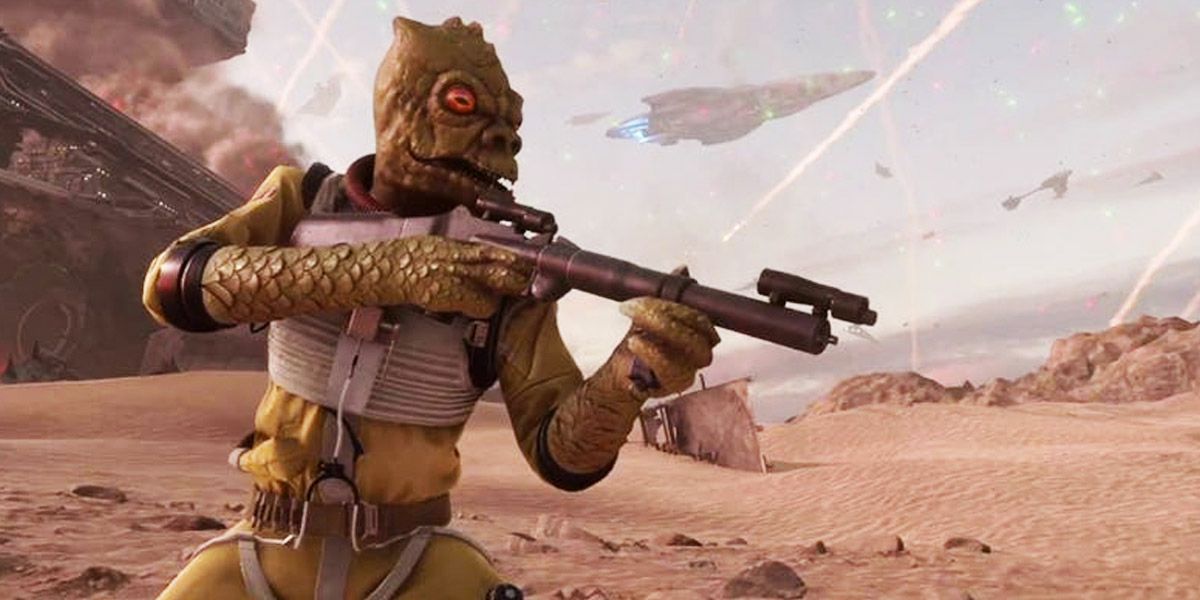 This discussion has generally been kept within the world of gaming. However, Star Wars: Battlefront II has changed all that. Whether it's due to the game's ties to the Star Wars franchise, the high profile of its release, or the fact the the Star Wars brand is now intrinsically linked to Disney, the criticism of Star Wars: Battlefront II has caught the attention of those outside of the video game sphere.The results have been incredible. Instead of EA simply backing off with loot boxes temporarily, the publisher has faced questions from the State of Hawaii, with Belgium also looking into the ethics of loot boxes and gambling. A can of worms has been opened, thanks to Electronic Arts.However, Battlefront II is far from the only game to include a loot box system, or a microtransaction system that has been perceived as destructive. EA is being fairly scrutinized for its part in the growth of loot box culture, but it is far from the only culprit. Instead, that path started several years ago.
This discussion has generally been kept within the world of gaming. However, Star Wars: Battlefront II has changed all that. Whether it's due to the game's ties to the Star Wars franchise, the high profile of its release, or the fact the the Star Wars brand is now intrinsically linked to Disney, the criticism of Star Wars: Battlefront II has caught the attention of those outside of the video game sphere.The results have been incredible. Instead of EA simply backing off with loot boxes temporarily, the publisher has faced questions from the State of Hawaii, with Belgium also looking into the ethics of loot boxes and gambling. A can of worms has been opened, thanks to Electronic Arts.However, Battlefront II is far from the only game to include a loot box system, or a microtransaction system that has been perceived as destructive. EA is being fairly scrutinized for its part in the growth of loot box culture, but it is far from the only culprit. Instead, that path started several years ago.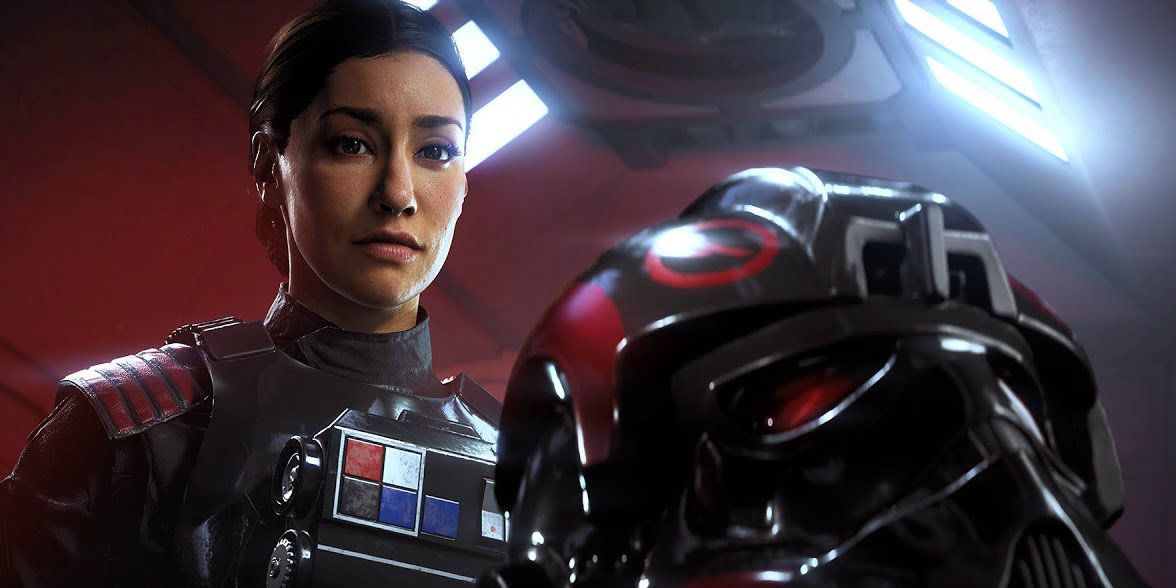 Loot boxes did not begin within the traditional gaming space. Instead, the business strategy crept into the mainstream from other areas where a top-tier entry price tag was not possible. Loot boxes arrived through free-to-play and mobile games, with one notable example being Puzzle & Dragons, whose business model was proved by many to be viable by being the first mobile game to pull in $1 billion in revenue.Valve, the developer of games such as Half-Life and creator of the Steam digital distribution system, swapped Team Fortress 2 over to free-to-play with loot boxes in tow back in 2010. The system, again, worked, increasing the pull of the already hugely popular online shooter.Related: Valve's New Card Game Earns BoosAlthough Team Fortress 2's loot boxes didn't cause much by way of complaints at the time, Valve's addition of random microtransactions did gain major controversy when tried again. Counter-Strike: Global Offensive saw the addition of skin-based loot boxes in 2013, and beyond simply a 'fun' way for players to get hold of new weapon skins, it instead helped create a manipulative second economy for the game, where players would gamble with skins. In 2015, this legally cloudy market was worth $2.3 billion.
Loot boxes did not begin within the traditional gaming space. Instead, the business strategy crept into the mainstream from other areas where a top-tier entry price tag was not possible. Loot boxes arrived through free-to-play and mobile games, with one notable example being Puzzle & Dragons, whose business model was proved by many to be viable by being the first mobile game to pull in $1 billion in revenue.Valve, the developer of games such as Half-Life and creator of the Steam digital distribution system, swapped Team Fortress 2 over to free-to-play with loot boxes in tow back in 2010. The system, again, worked, increasing the pull of the already hugely popular online shooter.Related: Valve's New Card Game Earns BoosAlthough Team Fortress 2's loot boxes didn't cause much by way of complaints at the time, Valve's addition of random microtransactions did gain major controversy when tried again. Counter-Strike: Global Offensive saw the addition of skin-based loot boxes in 2013, and beyond simply a 'fun' way for players to get hold of new weapon skins, it instead helped create a manipulative second economy for the game, where players would gamble with skins. In 2015, this legally cloudy market was worth $2.3 billion.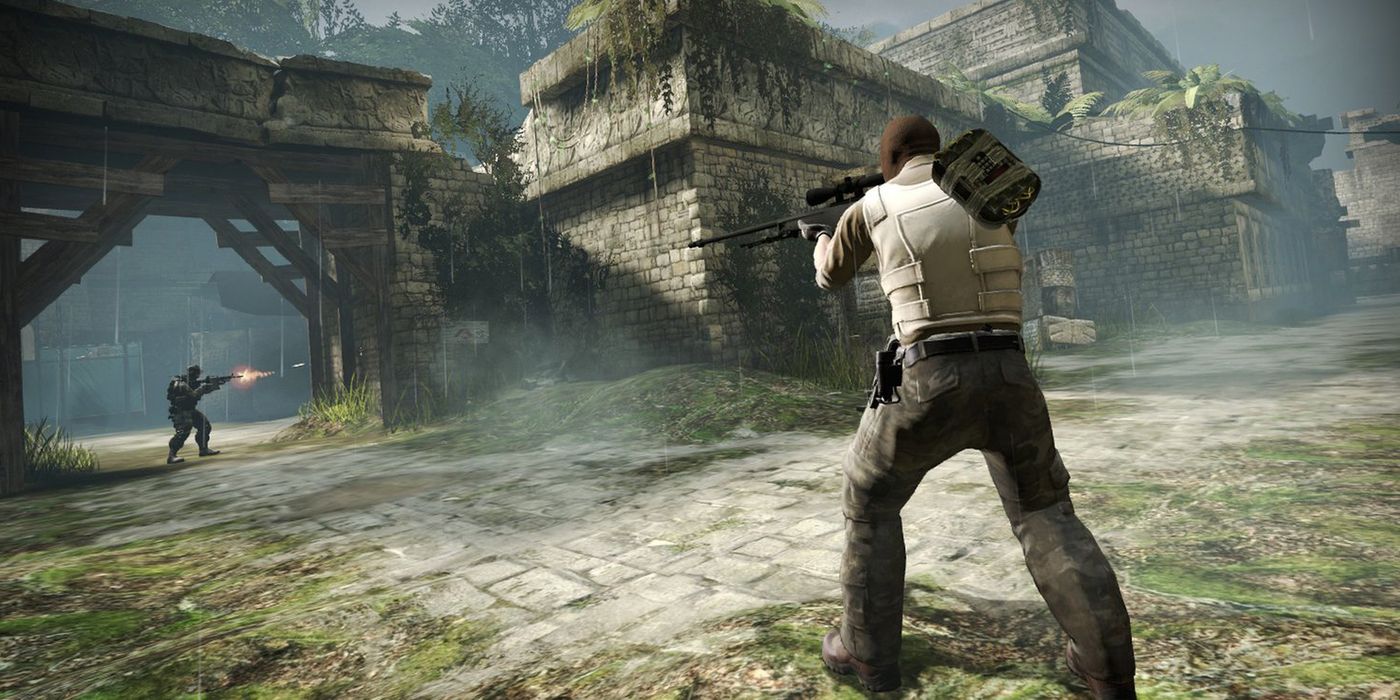 When it comes to companies beloved by video game fans, Valve is not alone in bringing about the popularity of loot boxes. Blizzard got on board with Overwatch, a game seen as perhaps the most important pioneer of loot boxes in traditional gaming. After all, there has been a spike in loot box availability since Overwatch released to much acclaim last year, and it's perhaps unlikely that Call of Duty: WW2 would make users watch players opening loot boxes were it not for Blizzard's success.With so many other examples of loot boxes being utilized in games, exactly why has Electronic Arts been pinpointed as a target for criticism? For starters, EA has history. Although Battlefront II is certainly one of the most high-profile games released to include such loot box practices, it's far from the only time that EA has pushed forward the ideology of microtransactions.One such example came just days before the release of Battlefront II. The game in question was Need for Speed: Payback, the latest title in the long-running Need for Speed franchise. There was little to make players sit up and take notice this time around, with one exception: the use of a loot box business model that was eerily similar to that utilized in Star Wars: Battlefront II.Related: Need for Speed Payback E3 Gameplay Trailer
When it comes to companies beloved by video game fans, Valve is not alone in bringing about the popularity of loot boxes. Blizzard got on board with Overwatch, a game seen as perhaps the most important pioneer of loot boxes in traditional gaming. After all, there has been a spike in loot box availability since Overwatch released to much acclaim last year, and it's perhaps unlikely that Call of Duty: WW2 would make users watch players opening loot boxes were it not for Blizzard's success.With so many other examples of loot boxes being utilized in games, exactly why has Electronic Arts been pinpointed as a target for criticism? For starters, EA has history. Although Battlefront II is certainly one of the most high-profile games released to include such loot box practices, it's far from the only time that EA has pushed forward the ideology of microtransactions.One such example came just days before the release of Battlefront II. The game in question was Need for Speed: Payback, the latest title in the long-running Need for Speed franchise. There was little to make players sit up and take notice this time around, with one exception: the use of a loot box business model that was eerily similar to that utilized in Star Wars: Battlefront II.Related: Need for Speed Payback E3 Gameplay Trailer 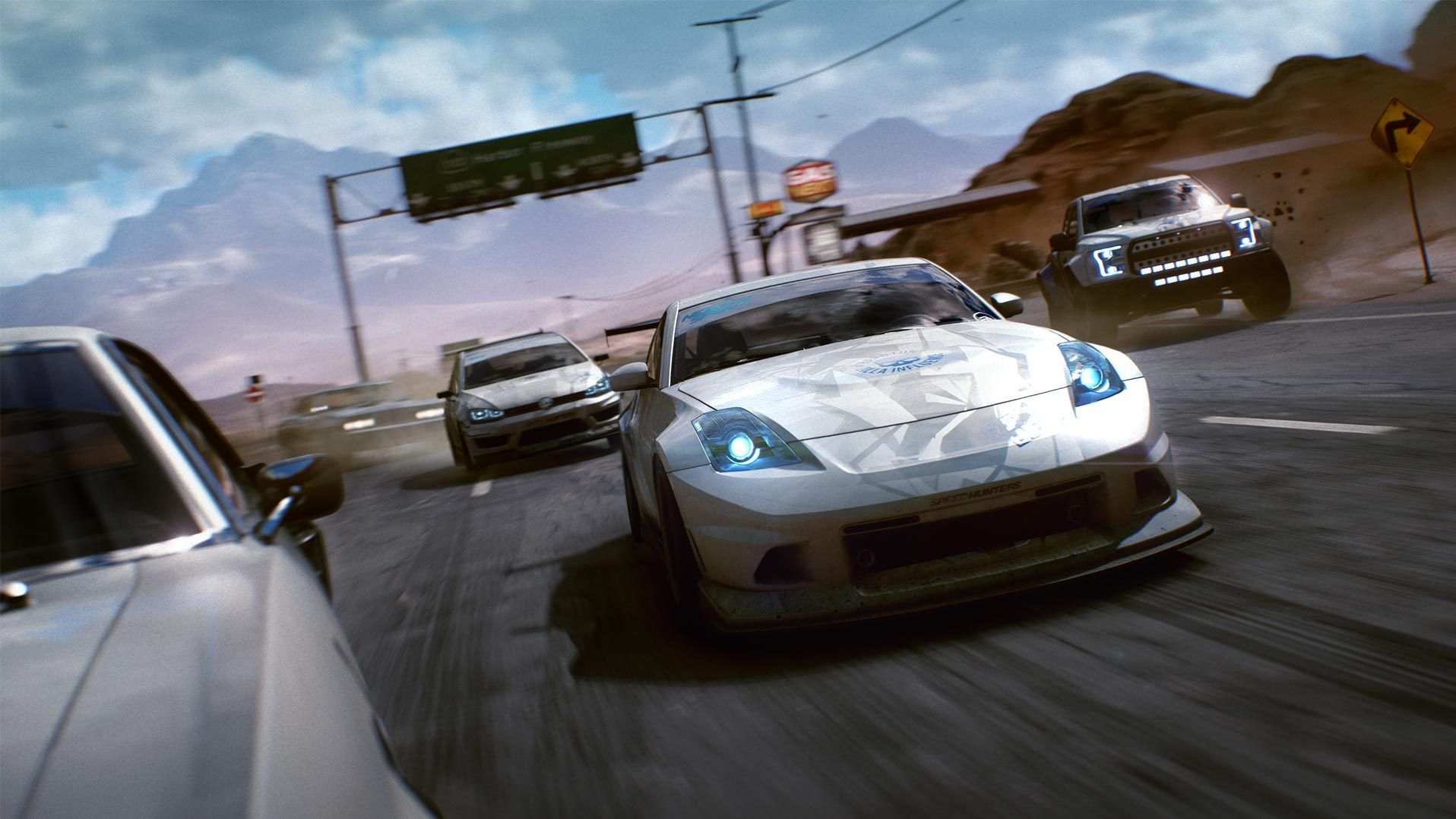 Need for Speed: Payback ditched traditional car-tweaking, instead throwing together an upgrade system based around Speed Cards. These cards are awarded randomly after successful races, in order for players to then boost their car's overall performance. However, with players unable to beat the competition in new races, they were left with two options: re-run old races and hope for good Speed Card drops, or make real-money purchases to get more of these cards.Understandably, fans of the series were extremely unhappy with these changes. At launch, it effectively made the game unplayable due to grind, throwing a heinous free-to-play model into a game that retailed at a standard price. What could have been a fun arcade-style racer had been hollowed before it even had a chance to make an impact.There has been a rollback from EA with regards to Payback, but it wasn't simply down to the amount of criticism it received from players itself. Instead, it was intrinsically tied to the complaints that Battlefront II received, as the notion of loot boxes gained more and more mainstream notoriety. Need for Speed: Payback may have slipped under the radar outside of the game's fans and those with deep roots in gaming after all, the world of racing games sometimes fails to interest even other video game players but with such scrutiny on the company as a whole, and reversals beginning on Battlefront II, it would have been hypocritical to leave Payback with the mechanics in place.
Need for Speed: Payback ditched traditional car-tweaking, instead throwing together an upgrade system based around Speed Cards. These cards are awarded randomly after successful races, in order for players to then boost their car's overall performance. However, with players unable to beat the competition in new races, they were left with two options: re-run old races and hope for good Speed Card drops, or make real-money purchases to get more of these cards.Understandably, fans of the series were extremely unhappy with these changes. At launch, it effectively made the game unplayable due to grind, throwing a heinous free-to-play model into a game that retailed at a standard price. What could have been a fun arcade-style racer had been hollowed before it even had a chance to make an impact.There has been a rollback from EA with regards to Payback, but it wasn't simply down to the amount of criticism it received from players itself. Instead, it was intrinsically tied to the complaints that Battlefront II received, as the notion of loot boxes gained more and more mainstream notoriety. Need for Speed: Payback may have slipped under the radar outside of the game's fans and those with deep roots in gaming after all, the world of racing games sometimes fails to interest even other video game players but with such scrutiny on the company as a whole, and reversals beginning on Battlefront II, it would have been hypocritical to leave Payback with the mechanics in place.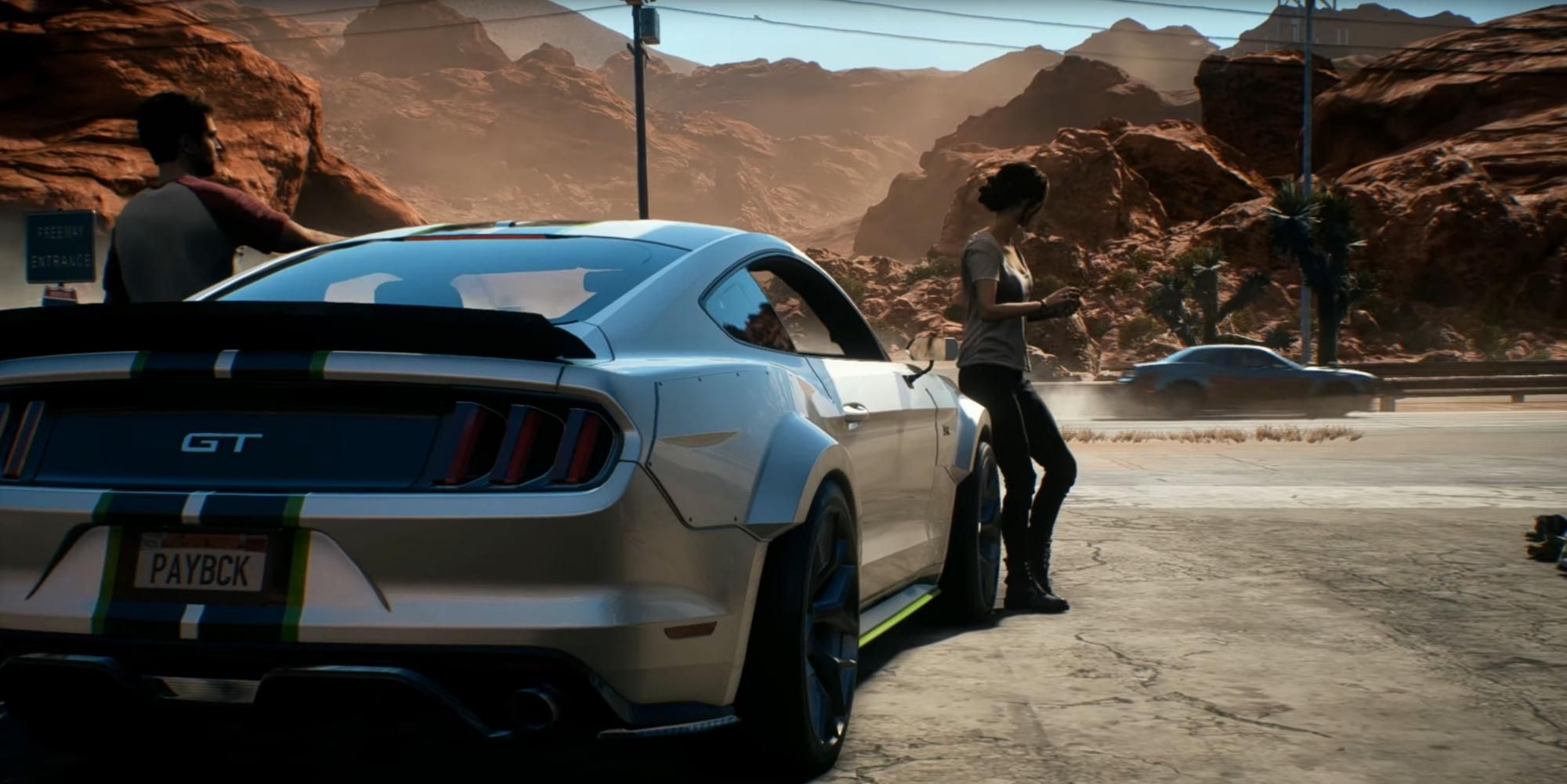 Going back further, however, EA's ties to loot box purchases are even clearer to see. The publisher is perhaps the company responsible for introducing that kind of business model into the world of AAA multiplayer shooter modes, after it was part of Mass Effect 3's multiplayer. Much like Battlefront II, of course, Mass Effect 3 was not exactly what fans had hoped for although in this case, the title's tacked-on multiplayer was seen as unnecessary in comparison to disappointment with the game's narrative, rather than specific complaints about loot boxes controlling the post-release conversations.Related: EA and BioWare Have Killed Mass EffectHowever, EA's biggest gift to loot box implementation is in the FIFA series of games. The sports franchise includes a game mode called FIFA Ultimate Team, first introduced back in 2010, which effectively frames FIFA around an online card game. Players can take part in usual matches, but their team is primarily random in nature.The quickest and easiest way to be successful in FUT is through the purchase of packs. These are separated into different categories, from Bronze through to Premium Gold packs, and include a mixture of player cards, consumables to improve the quality of the user's squad, and cosmetic items such as new kits and badges. The key though, is the ability to get new players through this loot box system.Quite simply, although Star Wars: Battlefront II has been gaining headlines for its use of loot boxes and its pay-to-win dynamics, it isn't new ground for EA. In fact, all Battlefront II is really doing is moving these mechanics over from one genre of game to another, concentrating them to their purest form. And who can blame EA given how it worked for FIFA?
Going back further, however, EA's ties to loot box purchases are even clearer to see. The publisher is perhaps the company responsible for introducing that kind of business model into the world of AAA multiplayer shooter modes, after it was part of Mass Effect 3's multiplayer. Much like Battlefront II, of course, Mass Effect 3 was not exactly what fans had hoped for although in this case, the title's tacked-on multiplayer was seen as unnecessary in comparison to disappointment with the game's narrative, rather than specific complaints about loot boxes controlling the post-release conversations.Related: EA and BioWare Have Killed Mass EffectHowever, EA's biggest gift to loot box implementation is in the FIFA series of games. The sports franchise includes a game mode called FIFA Ultimate Team, first introduced back in 2010, which effectively frames FIFA around an online card game. Players can take part in usual matches, but their team is primarily random in nature.The quickest and easiest way to be successful in FUT is through the purchase of packs. These are separated into different categories, from Bronze through to Premium Gold packs, and include a mixture of player cards, consumables to improve the quality of the user's squad, and cosmetic items such as new kits and badges. The key though, is the ability to get new players through this loot box system.Quite simply, although Star Wars: Battlefront II has been gaining headlines for its use of loot boxes and its pay-to-win dynamics, it isn't new ground for EA. In fact, all Battlefront II is really doing is moving these mechanics over from one genre of game to another, concentrating them to their purest form. And who can blame EA given how it worked for FIFA?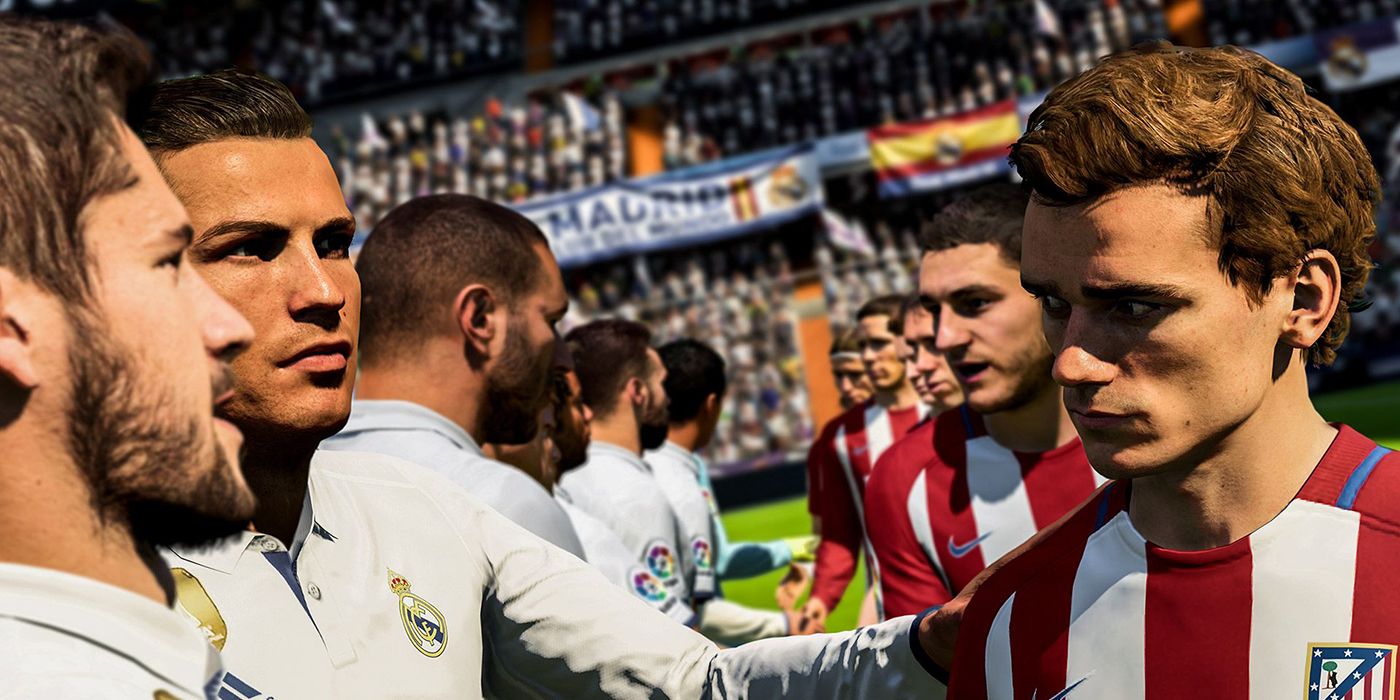 Star Wars and the FIFA football brand are both huge properties in their own right, with dedicated fanbases, but EA had generally managed to avoid criticism for its use of loot boxes in FIFA Ultimate Team.That's in spite of some practices that are at least on par with those found within Battlefront II. The Star Wars shooter has already become notorious for the fact that playable Darth Vader was extremely difficult to unlock, with EA and DICE using his status as one of the most iconic characters from the franchise as a reason to keep the Sith lord far away from casual play.FIFA Ultimate Team, however, has this kind of contentious model perfected. The higher a player's overall rating, the further away they are kept from the lowest cost loot boxes. Since the highest profile footballers in the world are generally the most successful, this means that players will need to pay extra to increase their chances of getting the most popular soccer stars, or meet the exorbitant price to buy directly. Lionel Messi and Cristiano Ronaldo don't come cheap.
Star Wars and the FIFA football brand are both huge properties in their own right, with dedicated fanbases, but EA had generally managed to avoid criticism for its use of loot boxes in FIFA Ultimate Team.That's in spite of some practices that are at least on par with those found within Battlefront II. The Star Wars shooter has already become notorious for the fact that playable Darth Vader was extremely difficult to unlock, with EA and DICE using his status as one of the most iconic characters from the franchise as a reason to keep the Sith lord far away from casual play.FIFA Ultimate Team, however, has this kind of contentious model perfected. The higher a player's overall rating, the further away they are kept from the lowest cost loot boxes. Since the highest profile footballers in the world are generally the most successful, this means that players will need to pay extra to increase their chances of getting the most popular soccer stars, or meet the exorbitant price to buy directly. Lionel Messi and Cristiano Ronaldo don't come cheap.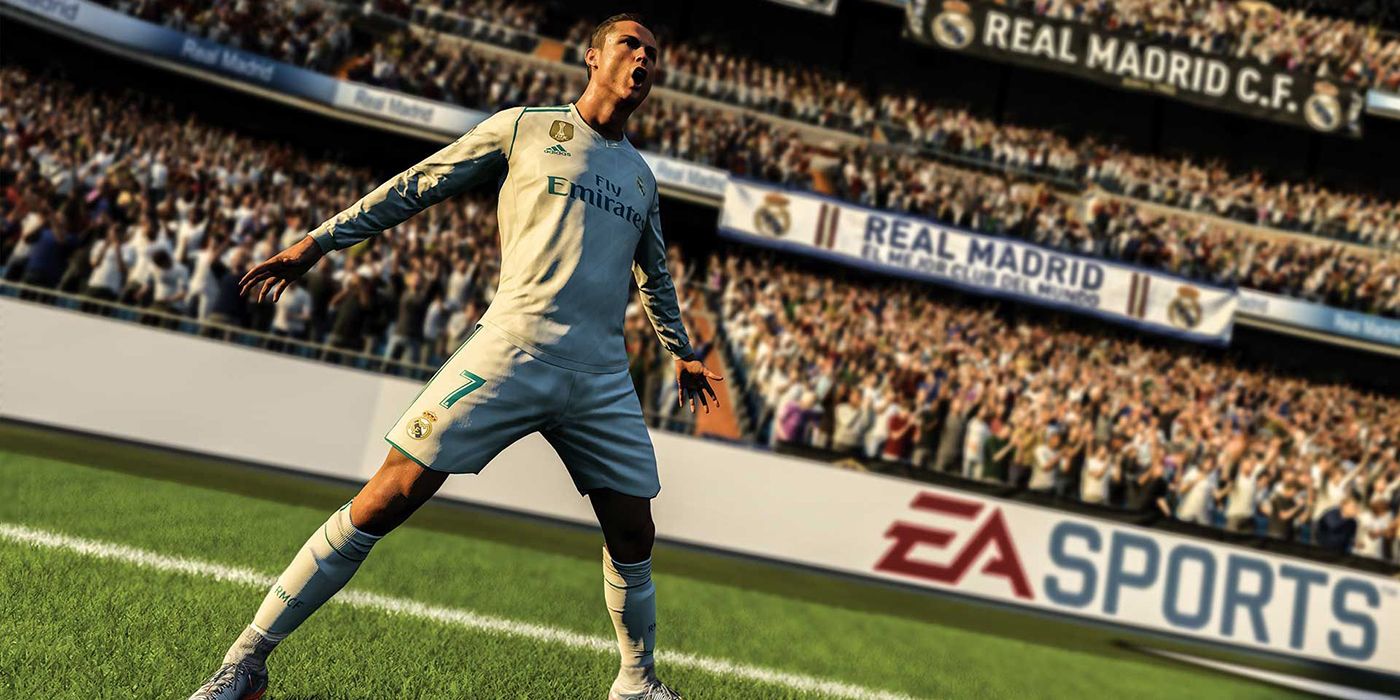 Beyond that, the other aspects of FIFA Ultimate Team also entice users to go after the top tier players. FUT users will be granted loan' players, and these loan players qualities could far outweigh the rest of the squad. These players don't last forever, as the name suggests, and should the user become reliant on the player in question then there's every chance they'll turn to purchasing packs to try and find a replacement once the loan spell ends.Related: EA Says People Don't Like Linear Games AnymoreAs well as this, the hierarchical structure of FUT also plays into the need to get packs to improve the user's squad. If the player wants to keep moving up the rankings, they'll need to improve their squad to get a better chance at beating the opposition. Meanwhile, the inclusion of chemistry' which grants rewards based around arbitrary elements such using players from the same league or squad or who have the name nationality makes it even tougher to perfect' a squad.Of course, it's disingenuous to state that the gameplay of Ultimate Team is necessarily framed around loot boxes, but the game ties into those same old tried-and-tested Skinner box reward strategies that have been part of gaming for an extremely long time. When these methods of granting player satisfaction to push continued play are combined with gambling-based random reward models, then there are definitely problems that need to be discussed. FUT is often praised for its addictiveness' by players and fans, and that in turn raises issues with regards to the game mode's business strategies.
Beyond that, the other aspects of FIFA Ultimate Team also entice users to go after the top tier players. FUT users will be granted loan' players, and these loan players qualities could far outweigh the rest of the squad. These players don't last forever, as the name suggests, and should the user become reliant on the player in question then there's every chance they'll turn to purchasing packs to try and find a replacement once the loan spell ends.Related: EA Says People Don't Like Linear Games AnymoreAs well as this, the hierarchical structure of FUT also plays into the need to get packs to improve the user's squad. If the player wants to keep moving up the rankings, they'll need to improve their squad to get a better chance at beating the opposition. Meanwhile, the inclusion of chemistry' which grants rewards based around arbitrary elements such using players from the same league or squad or who have the name nationality makes it even tougher to perfect' a squad.Of course, it's disingenuous to state that the gameplay of Ultimate Team is necessarily framed around loot boxes, but the game ties into those same old tried-and-tested Skinner box reward strategies that have been part of gaming for an extremely long time. When these methods of granting player satisfaction to push continued play are combined with gambling-based random reward models, then there are definitely problems that need to be discussed. FUT is often praised for its addictiveness' by players and fans, and that in turn raises issues with regards to the game mode's business strategies.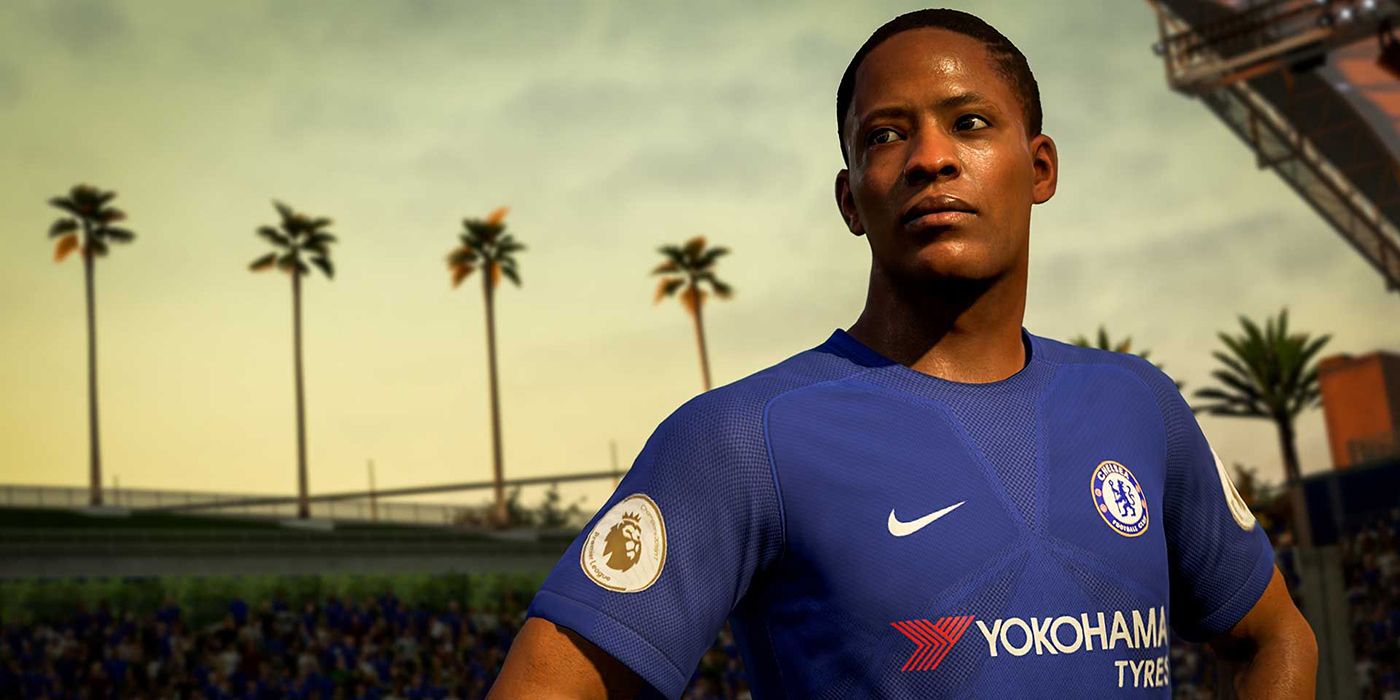 FUT has one, well-trodden defense: it's not compulsory. Much like Battlefront II and Middle-earth: Shadow of War, it's not required to buy into the loot box mechanics to be successful, but it certainly makes it easier. It's a game that drives players to succeed, and to succeed quickly.In spite of the scrutiny aimed at Battlefront II, it's unlikely that EA is going to change FUT anytime soon. So far, it's not gained anything like the level of complaints, perhaps down to its incremental implementation over several years, but on top of everything else it is a cash cow for the publisher. At the moment, FUT is worth $800 million a year, and that figure is only increasing. There's no incentive for EA to move on.Related: Video Game Franchises That Will Never Be Allowed To DieIn fact, EA has thrown controversial loot boxes into yet another game in recent days. UFC 3 includes its own version of Ultimate Team, and much like its FIFA stablemate the mode is built with loot boxes as a core option to process. The game has even been described as worse than the FIFA model, making fighters with loot box upgrades nigh-on untouchable in matches.
FUT has one, well-trodden defense: it's not compulsory. Much like Battlefront II and Middle-earth: Shadow of War, it's not required to buy into the loot box mechanics to be successful, but it certainly makes it easier. It's a game that drives players to succeed, and to succeed quickly.In spite of the scrutiny aimed at Battlefront II, it's unlikely that EA is going to change FUT anytime soon. So far, it's not gained anything like the level of complaints, perhaps down to its incremental implementation over several years, but on top of everything else it is a cash cow for the publisher. At the moment, FUT is worth $800 million a year, and that figure is only increasing. There's no incentive for EA to move on.Related: Video Game Franchises That Will Never Be Allowed To DieIn fact, EA has thrown controversial loot boxes into yet another game in recent days. UFC 3 includes its own version of Ultimate Team, and much like its FIFA stablemate the mode is built with loot boxes as a core option to process. The game has even been described as worse than the FIFA model, making fighters with loot box upgrades nigh-on untouchable in matches.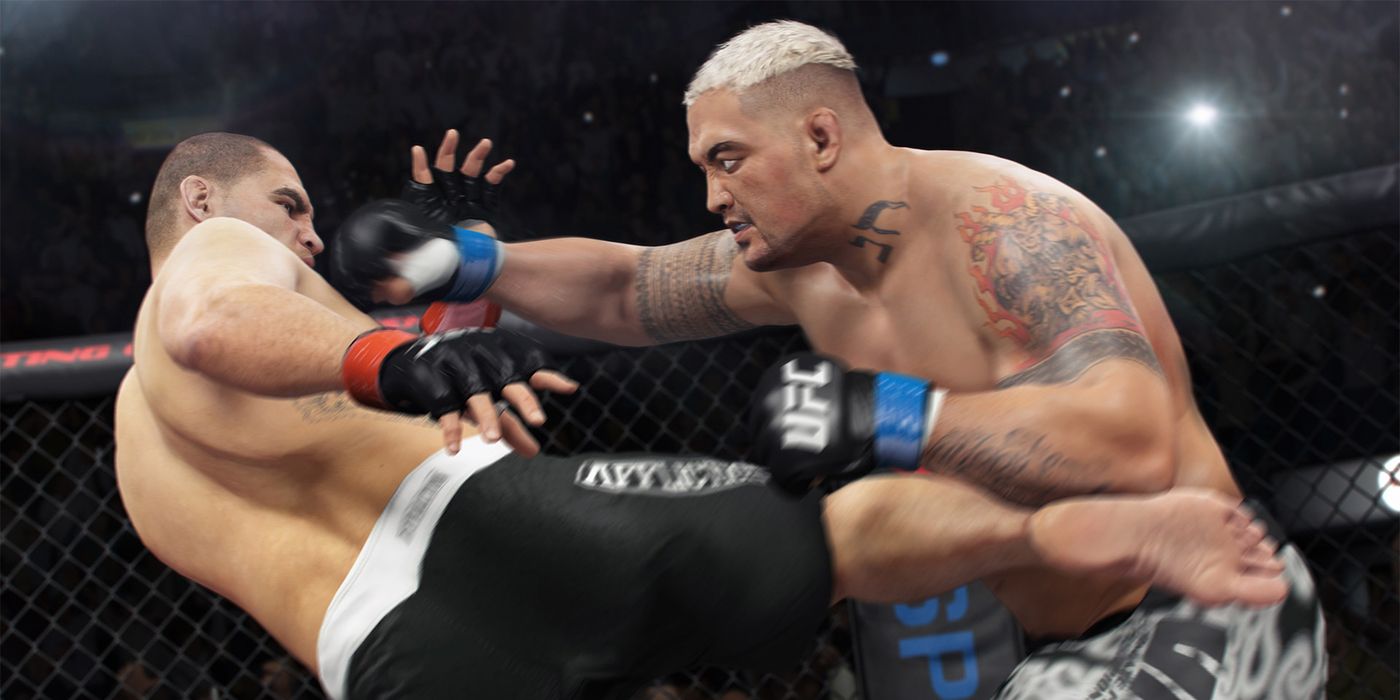 Of course, there's a chance that the increased scrutiny in the company through Battlefront II and other newly-released games might force EA to act. The fact that the publisher is now attracting attention from governmental bodies with regards to loot boxes will certainly be a concern for them, particularly given that regulation of loot boxes is nothing new. A number of Asian countries, for instance, have taken measures against loot boxes, with China requiring the odds for all loot boxes to be disclosed to purchasers.That's not the way that publishers are going, though, as 2017 has seen a push to try and normalize loot boxes. Not only that, but there's been a drive to try and normalize loot boxes for pay-to-win content. As game creators push further ways to try and make money from games, as seen by Bungie and Activision's rigged XP system for Destiny 2, video game fans will need to think long and hard about their purchases, and whether they want to buy into these practices at all.More: Star Wars: Battlefront II Is Just So Damn Disappointing
Of course, there's a chance that the increased scrutiny in the company through Battlefront II and other newly-released games might force EA to act. The fact that the publisher is now attracting attention from governmental bodies with regards to loot boxes will certainly be a concern for them, particularly given that regulation of loot boxes is nothing new. A number of Asian countries, for instance, have taken measures against loot boxes, with China requiring the odds for all loot boxes to be disclosed to purchasers.That's not the way that publishers are going, though, as 2017 has seen a push to try and normalize loot boxes. Not only that, but there's been a drive to try and normalize loot boxes for pay-to-win content. As game creators push further ways to try and make money from games, as seen by Bungie and Activision's rigged XP system for Destiny 2, video game fans will need to think long and hard about their purchases, and whether they want to buy into these practices at all.More: Star Wars: Battlefront II Is Just So Damn Disappointing

